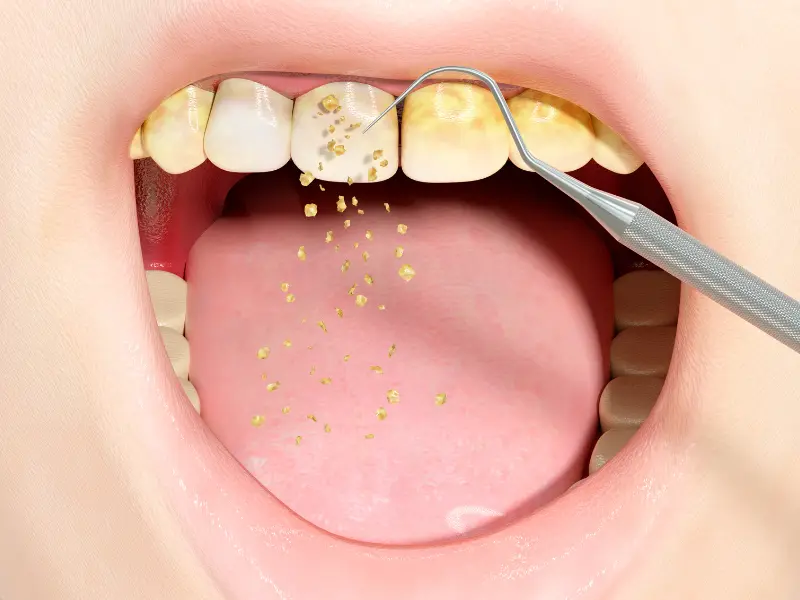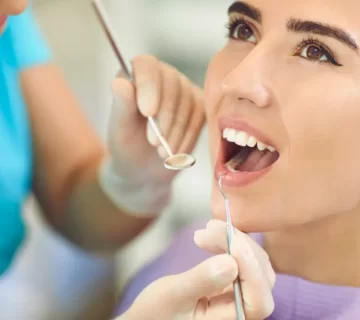Veneers are a popular cosmetic dental procedure that can improve the appearance of teeth by covering up imperfections, such as discoloration, chips, or gaps. However, veneers are not a permanent solution and will need to be replaced or removed eventually. If you are considering removing your veneers or have already done so, it’s essential to know what to expect regarding your teeth’s appearance and health afterward. In this article, we’ll discuss everything you need to know about teeth after veneers removed.
Table of Contents
1. Why Remove Veneers and teeth after veneers removed?
There are several reasons why someone might decide to remove their veneers. These can include:
- Veneers are worn, chipped, or cracked.
- Veneers are discolored or stained.
- The underlying tooth is decayed or damaged.
- The veneers no longer fit properly or have shifted.
- The individual wants a more natural look or a different cosmetic treatment.

2. What Happens During the Veneer Removal Process and how about teeth after veneers removed?
The process of removing veneers typically involves the following steps:
- The dentist will first numb the area with a local anesthetic.
- They will then use a dental handpiece to carefully remove the veneers from the tooth’s surface.
- Any residual bonding material will be removed.
- The tooth will be cleaned and polished.
Check This Out! Can You Brush Veneers Once a Day? A Comprehensive Guide
3. What Will My Teeth Look Like After Veneers are Removed?
Once the veneers are removed, your teeth may appear discolored or stained, especially if the veneers were covering up significant imperfections. Additionally, your teeth may feel sensitive, and you may experience some discomfort or pain for several days after the procedure. However, your natural teeth will still be healthy and intact.
4. How Can I Care for My Teeth After Veneers Removed?
It’s essential to follow your dentist’s instructions carefully to care for your teeth after veneers removed. This may include:
- Avoid hard, crunchy, or sticky foods for several days after the procedure.
- Using a soft-bristled toothbrush and non-abrasive toothpaste to brush your teeth gently.
- Avoid teeth whitening treatments for at least two weeks after the procedure.
- Using a desensitizing toothpaste if you experience sensitivity.
- Scheduling regular dental checkups to monitor your oral health.
5. What Are My Options for Replacing Veneers?
If you have decided to remove your veneers, you may be wondering what your options are for replacing them. Some alternatives to veneers include:
- Dental bonding: a procedure in which a tooth-colored resin is applied to the tooth’s surface to improve its appearance.
- Dental crowns: a more invasive procedure in which the entire tooth is covered with a cap to improve its appearance.
- Teeth whitening: a procedure to remove stains or discoloration from your natural teeth.
- Orthodontics: a treatment to straighten crooked teeth or close gaps between teeth.
6. Can I Get Veneers Again After Having Them Removed?
Yes, it is possible to get veneers again after having them removed. However, it’s essential to consider the reasons why you had them removed in the first place and whether veneers are the best option for your oral health and cosmetic goals.
7. What Are the Risks of Removing Veneers?
Removing veneers is a relatively safe procedure. However, there are some risks involved, such as:
- Damage to the underlying tooth.
- Increased sensitivity or pain in the tooth.
- Discoloration or staining of the natural tooth.
Infection or inflammation of the surrounding gum tissue.
It’s essential to discuss the risks and benefits of removing veneers with your dentist before proceeding with the procedure.
8. How Long Does the Veneer Removal Process Take?
The length of the veneer removal process will depend on how many veneers need to be removed and the condition of the underlying teeth. Typically, the process can take between 30 minutes to an hour.

9. Will Insurance Cover the Cost of Veneer Removal?
In most cases, insurance will not cover the cost of veneer removal, as it is considered a cosmetic procedure. However, it’s essential to check with your insurance provider to understand your coverage.
10. How Much Does Veneer Removal Cost?
The cost of veneer removal can vary depending on several factors, such as the number of veneers being removed, the complexity of the procedure, and the dentist’s fees. On average, the cost of veneer removal can range from $200 to $500 per tooth.
11. Can I Remove Veneers Myself?
No, it’s not recommended to remove veneers yourself. This is a delicate procedure that requires the skills and expertise of a trained dental professional. Attempting to remove veneers yourself can result in irreversible damage to your teeth.
12. How Long Will It Take for My Teeth to Look Normal After Veneer Removal?
It may take several days or weeks for your teeth to look normal after veneer removal. This is because your natural teeth may appear discolored or stained immediately after the procedure. However, with proper care and maintenance, your teeth should begin to look normal within a few weeks.
13. Are There Any Alternatives to Veneers?
Yes, there are several alternatives to veneers, such as dental bonding, dental crowns, teeth whitening, and orthodontics. It’s essential to discuss these options with your dentist to determine the best treatment plan for your needs.
14. How Can I Prevent Needing to Remove Veneers in the Future?
To prevent the need for veneer removal in the future, it’s essential to maintain good oral hygiene habits, such as brushing and flossing regularly and visiting your dentist for routine checkups. It’s also essential to avoid habits that can damage your teeth, such as chewing on ice or using your teeth to open packaging.

15. Conclusion of teeth after veneers removed
Removing veneers can be a daunting process, as it involves the removal of a thin layer of tooth enamel, and in some cases, may require the use of dental equipment such as a drill or laser. However, with proper care and maintenance, your teeth can look and feel healthy again after veneer removal.
Before proceeding with veneer removal, it’s essential to discuss the risks and benefits of the procedure with your dentist. In some cases, veneer removal may be necessary due to damage, decay, or discoloration of the underlying tooth. Other times, a patient may wish to remove their veneers due to discomfort or dissatisfaction with the appearance of their teeth.
It’s crucial to consider all of your treatment options before proceeding with veneer removal. Your dentist can help you explore alternative options such as tooth whitening or orthodontic treatment to achieve your desired result. It’s important to weigh the risks and benefits of each treatment option and choose the one that is best for you.
During the veneer removal process, a dentist will carefully remove the veneer and any adhesive residue from the underlying tooth. This may involve the use of a dental drill or laser, and in some cases, may cause temporary sensitivity or discomfort. However, with proper care and maintenance, any discomfort should subside within a few days or weeks.
After veneer removal, it’s essential to take care of your natural teeth to maintain their health and appearance. This includes brushing and flossing regularly, avoiding hard or crunchy foods that can damage your teeth, and visiting your dentist for routine checkups and cleanings every six months.
Check This Out! What Do Teeth Look Like Under Veneers: A Comprehensive Guide
In conclusion, veneer removal can be a necessary and effective solution for restoring the health and appearance of your natural teeth. However, it’s essential to discuss the risks and benefits of the procedure with your dentist and to consider all of your treatment options before proceeding. With proper care and maintenance, your teeth can look and feel healthy again after veneer removal.
FAQs about teeth after veneers removed
Is veneer removal painful?
The process of veneer removal is typically not painful, as the dentist will numb the area with a local anesthetic. However, you may experience some discomfort or sensitivity after the procedure.
Can I whiten my teeth after veneer removal?
Yes, you can whiten your teeth after veneer removal. However, it’s essential to wait at least two weeks after the procedure to allow your teeth to heal properly.
Will my teeth be damaged after veneer removal?
In most cases, your natural teeth will not be damaged after veneer removal. However, there is a small risk of damage to the underlying tooth during the removal process.
How long do veneers typically last?
Veneers can last between 5 to 15 years, depending on how well they are maintained and the individual’s oral health.
Is it normal to experience sensitivity after veneer removal?
Yes, it’s normal to experience some sensitivity after veneer removal due to the removal of the veneer and exposure of the underlying tooth. However, this should subside within a few days or weeks.
Can veneers be re-attached after removal?
In some cases, veneers can be re-attached after removal. However, this will depend on the condition of the underlying tooth and the veneer.
Can I eat and drink normally after veneer removal?
It’s recommended to avoid eating or drinking anything for at least an hour after the veneer removal procedure. After that, you can resume eating and drinking normally, but it’s essential to avoid hard, crunchy, or sticky foods that can damage your teeth.
How often should I visit the dentist after veneer removal?
It’s recommended to visit the dentist for routine checkups and cleanings every six months after veneer removal to ensure the health and longevity of your natural teeth.
Is veneer removal reversible?
No, once veneers are removed, they cannot be re-attached. It’s essential to consider all of your treatment options carefully before proceeding with veneer removal.
In conclusion, veneers can be an effective cosmetic solution for enhancing the appearance of your teeth. However, there may come a time when you need to consider veneer removal. It’s essential to understand the risks and benefits of the procedure and to consider all of your treatment options before proceeding. With proper care and maintenance, your natural teeth can look and feel healthy again. Remember to maintain good oral hygiene habits and to visit your dentist regularly for routine checkups and cleanings.





No comment